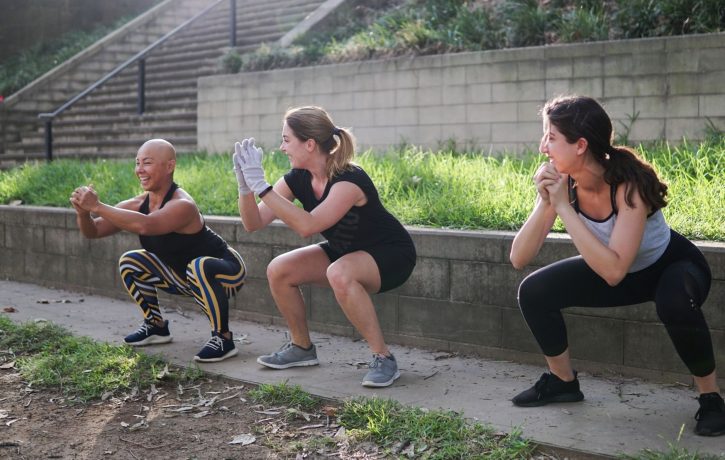in Therapeutic Massage, Yoga & Pilates
Why Does My Hip Flexor Feel So Tight?

Tight and uncomfortable hips are very common. Particularly in practices like Pilates, where traditionally a lot of time is spent lying on your back, holding your legs off the ground, the tight and overworked hip flexors can really get in the way of comfort and achievement.
So, what is going on with those hip flexors?
There are a few reasons that are most likely to blame for our chronic hip flexor problems.
As adults we tend to deprive our body of the diverse and varied movements it is designed to do and that we have no problem with when we are children. So our hips, over time, do start to stiffen and loose their movement ability. This alone can bring discomfort, tightness and dysfunction. However as much as we do not allow our body to go through varied movement patterns we sit for excessive amounts of time. Remember the chair was invented my mankind, not nature. Our bodies were never designed to sit the way we do!
As we sit for a majority of the day our hips spend that time passively flexed. Our body literally adapts to this sitting position. We then might go to the gym or a class. If squats, lunges, steppers, cycling or those classical abdominal exercises on your back are part of your workout you are likely making the problem worse!
This is not to say that squats and alike are bad for you, quite the opposite is the case of course. However, you are engaging in those exercise challenges with a body that has just spend the last few hours adapting to sitting down. The result is that the quality and functionality of your hipflexion based exercises may not be great and hence overwork some already tight and dysfunctional hip flexors.
Another aspect making things worse is that as a society we are prone to prolonged high stress, anxiety and exhaustion. Even on a low but persistent level, this nervous system state has a huge impact on our body. Most of us know that we tend to feel more shoulder or neck tension when we are stressed, right? Our hip flexors are also very reactive to stress.
Imagine someone gives you a fright. What does your body instinctively do at that moment to protect you? Our shoulders go up to protect our neck and we duck. Ducking involves flexing at our hips. This reaction is very obvious if we are experiencing such a sudden change of state from all is well to being given a fright. However, when we are going through stressful times we basically are spending prolonged amounts of time in this ducking, hunching body. Our brain has understood that there is no imminent threat and therefore our body somewhat resumes normal function and posture. But the low-level threat is ongoing and still sending signals to our shoulders and hip flexors to contract. So this does not help us with the goal to have healthy balanced hip flexors.
What do we do about this?
Of course it would be best if we sit less, are less stressed and generally move in more varied ways but that is easier said then done.
What we can do however is spend some time to understand how we can encourage healthier hip flexion when we take our time to exercise. Rather than pushing out as many squats as possible in the time you have, prepare with some embodiment and relaxation practice that helps your body come out of its fight or flight state. Mobilise your hips thoroughly before engaging in strengthening exercises and learn how you can facilitate a deeper more healthy and efficient hip flexion. Nowadays that is something that you should be taught in your Pilates classes. And when you do begin to engage with more challenging exercises always put quality over quantity.
If you follow these suggestions you should feel an improvement to your hips and hip flexors in particular over time.
If you would like more support with this, contact Kristin at The Body Matters on 01702 714968.
- The Thing About Mixed Feelings Is… - 4th June 2023
- Overthinkers – Here Is What You Really Need To Know - 28th April 2023
- Why Emotions Can Be Overwhelming - 13th December 2022
